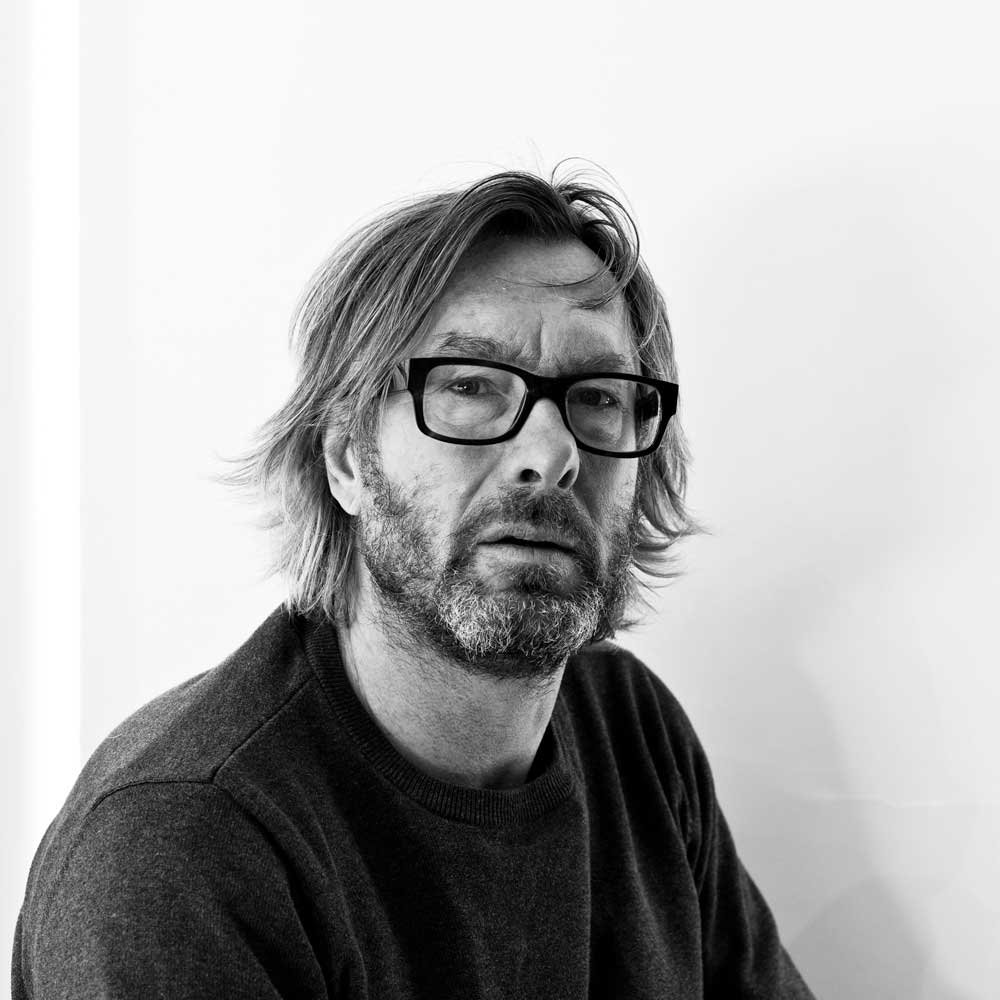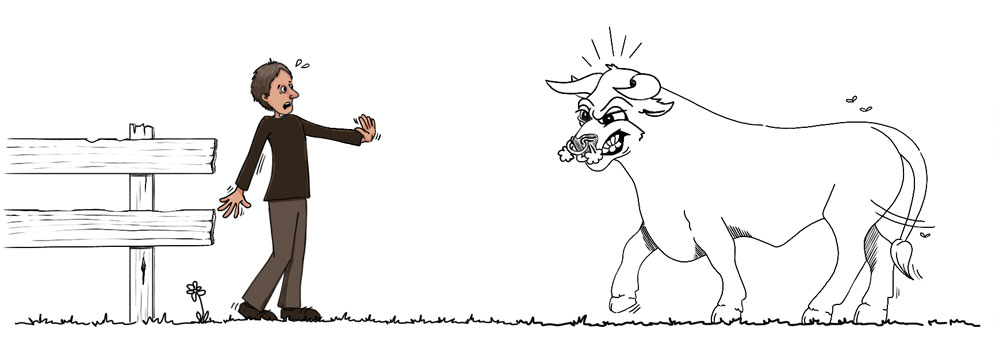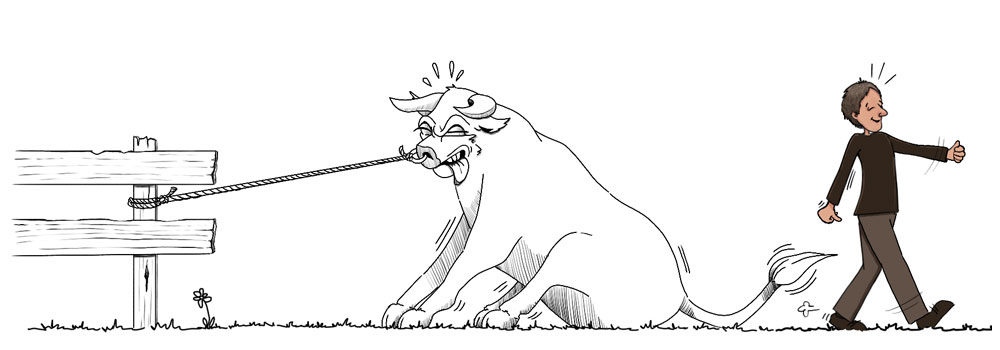Task 37 – Turn weakness into strength
Task 37
Turn weakness into strength

Vestfold, Norway, 2015. Photo: Trond Johan Andersen
Problem
Writing off a weakness
I thought that I couldn’t get good at sports since I was a weakling. Or that I couldn’t be a doctor because I would faint at the sight of blood. Or that I couldn’t be a squad commander because I was so shy. And because I took such bad pictures, I couldn’t in any case become a good photographer. I was completely wrong about these things every single time.
Previously in this book, we have worked with identifying something we are good at that we should utilize. This sounds reasonable, but, in addition, we may have some weak sides that would be worth investigating, sides that we and others have written off maybe because we can’t see the potential in them.
We like to think that our weak sides only hinder us. That is not true. We can actually turn a weakness into a strength if we work with it. And not only that, those of us who have been weak at something can become even stronger than those people who were good to begin with. Talented people relax while the rest of us mobilize a work ethic that makes it possible to pass them by, as long as we have the right motivation and put in a great effort over time.
Paddling offered the first arena where I learned how good a person could become despite a bad starting point if he or she practices systematically. This experience gave me the courage to dare to take the commander training course, which in turn gave me the courage to study medicine, to become a photographer and documentary filmmaker and to sail around the world with my family.
Is there something you can’t do very well but which you would really like to be good at? Are you willing to give it a try?
On a scale of 1 to 6, how relevant is this issue for you?:

Solution
Work on a weakness
Remarkably, the people who really succeed in this world have often started in the back of the line. They have had to strive to improve, and since work ethic trumps talent, over time they manage to catch up and pass those who originally were the best. They have had to develop their abilities on their own and therefore have really good control over them.
The camera’s weakness is that it only sees with one eye. It doesn’t have stereo or binocular vision, so the three dimensionality that we perceive with two eyes becomes two-dimensional. Just try to drive a car, walk down some stairs or walk around rugged terrain with one eye closed, then you will experience how dependent we are on binocular vision in order to judge distance. This is how a camera sees. A camera is not so easily fooled by the three-dimensionality of reality. Something that looks really exciting with stereo vision, for example a great view of a valley, can seem surprisingly boring on a surface, while the subject may seem boring with stereo vision and yet becomes interesting when the elements are drawn together into a two-dimensional surface.
PHOTO ASSIGNMENT:
When we take photos, we should close one eye in order to see like a camera does. Take some pictures with this in mind. Maybe the subject can be a weakness you want to improve?
On a scale of 1 to 6, how useful was this task for you?:
Task 38
Compose
There are a lot of elements here in this precisely composed picture. And Yann is precise. He has written the Norwegian Etymological Dictionary. In this picture, my eyes are first drawn towards the white church and then to the two flower vases and the small boat between them. Then I perceive the mountain and the curtains. Yann has let there be a glimmer of the sky that can be seen under the curtains. Maybe there were a few white napkins on the windowsill that he had to remove. As photographers, we have to choose what we will include in the picture and what we are going to leave out. What we take out is just as important as what we want to include. The more we practice doing this, the easier it becomes. Do you think that the composition is a good one? Or, maybe you don’t? What is most important is that Yann does. How do your eyes wander across this picture? Where would you have placed a seagull if it had come flying by?
KARLSØY, FAROE ISLANDS, 2015. Photo: Yann de Caprona
Dealing with depression effectively is a mark not of weakness, but of strength.
Andrew Solomon
A hero is someone who, in spite of weakness, doubt or not always knowing the answers, goes ahead and over- comes anyway.
Christopher Reeve
What we think of as weakness is often our greatest source of strength.
Henri Matisse
I took photos of
I felt
I learned that
I managed to
I am grateful that
224
225
BOOK SUGGESTION: Tobi Zausner When Walls Become Doorways: Creativity and the Transforming Illness by Tobi Zausner. Also see ted.com.

❞ Dealing with depression effectively is a mark not of weakness, but of strength.
Andrew Solomon
❞ A hero is someone who, in spite of weakness, doubt or not always knowing the answers, goes ahead and over- comes anyway.
Christopher Reeve
❞ What we think of as weakness is often our greatest source of strength.
Henri Matisse
[note_editor]

